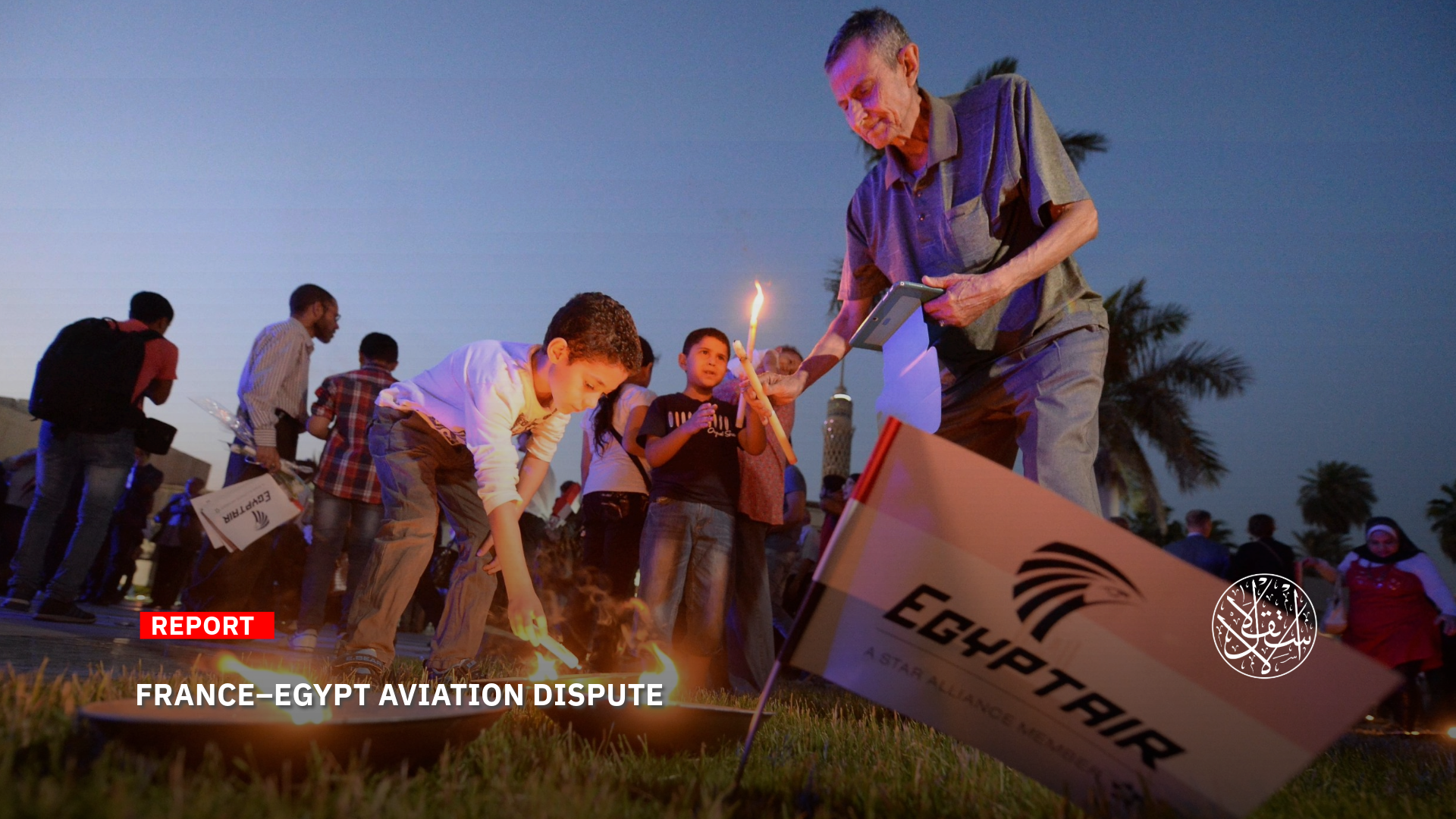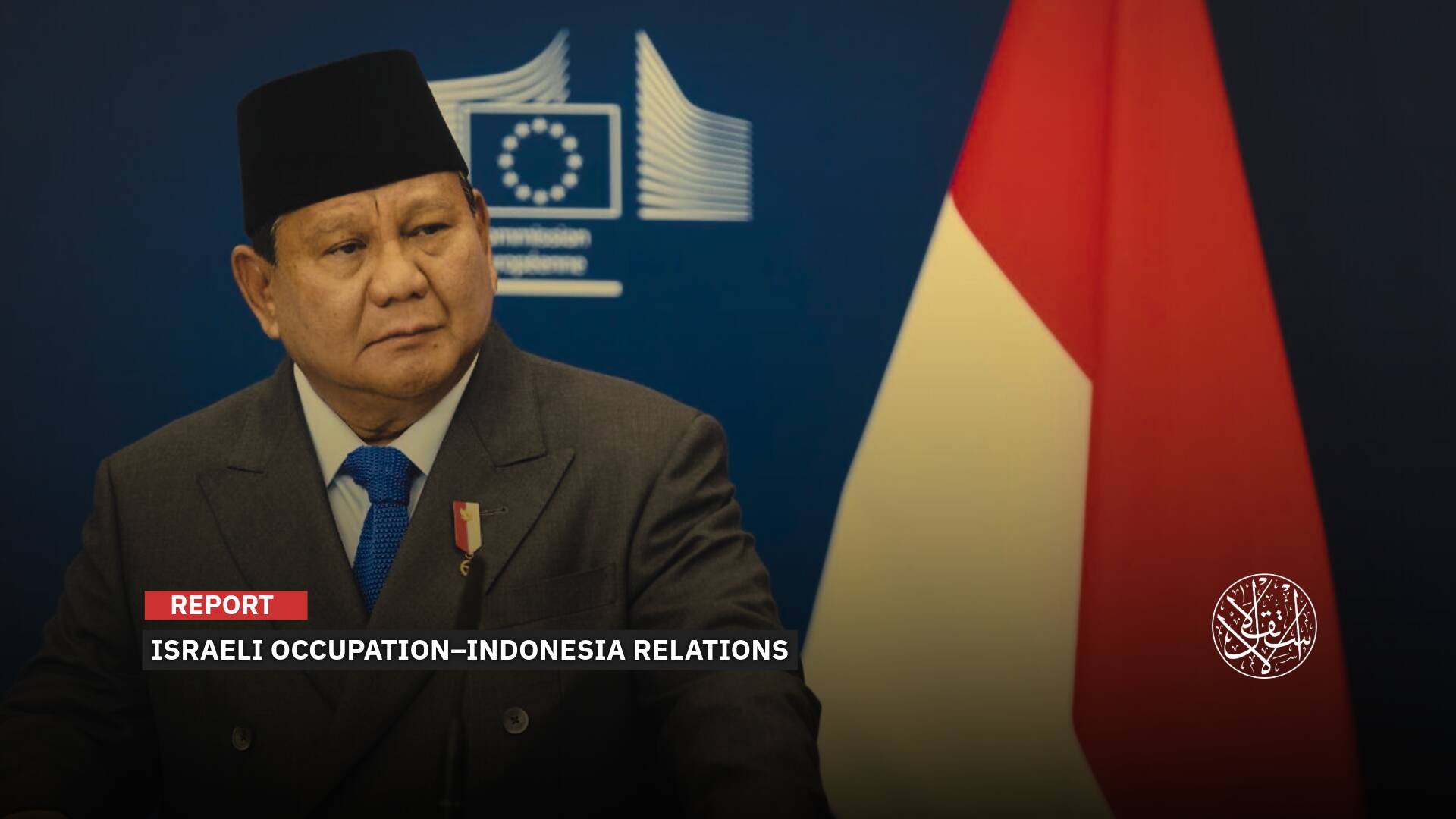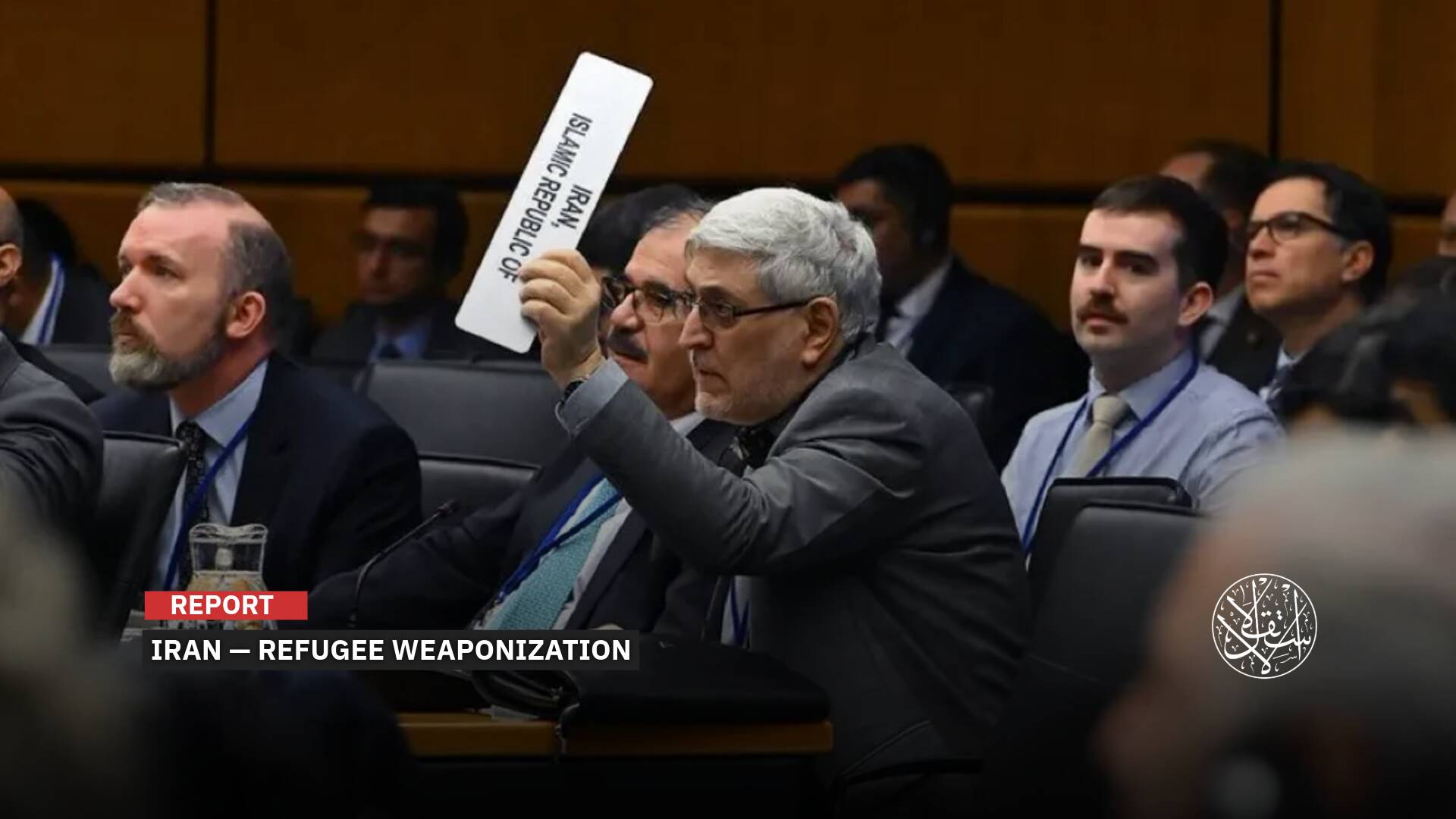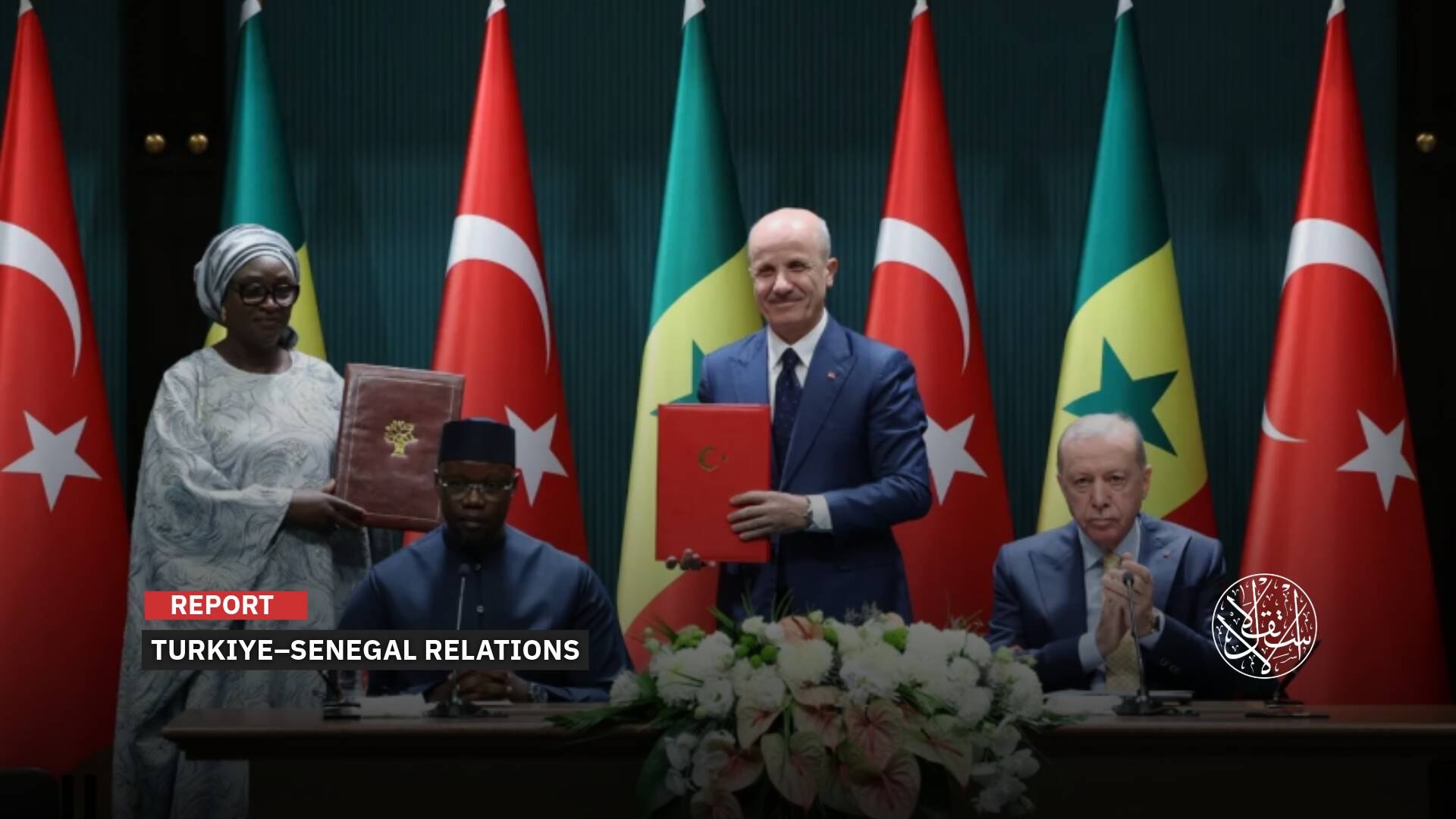EgyptAir Flight MS804: What’s Behind France-Egypt Aviation Dispute?

The plane disaster was caused by a cockpit fire, reportedly from a cigarette.
Eight years after the tragedy, EgyptAir, a state-owned airline, issued a formal statement regarding the crash of a passenger plane on May 19, 2016, which occurred during its flight from Charles de Gaulle Airport in France to Cairo International Airport.
The final report from the Egyptian Aircraft Accident Investigation Directorate (EAAID) of the Ministry of Civil Aviation of Egypt concerning EgyptAir Flight MS804, has been received and shared with the families of those affected by this heartbreaking incident.
A Mysterious Report
The statement issued by EgyptAir did not elaborate on the details of the report, nor did it clarify whether it included the causes of the crash.
However, it did express that “our hearts remain with the families and loved ones who continue to bear the profound sorrow of this loss.”
On May 19, 2016, Egypt experienced one of the worst plane crashes in its history.
The EgyptAir Airbus A320 disappeared from radar after entering Egyptian airspace, just 10 miles from the country’s air traffic control zone, at an altitude of 37,000 feet.
The following day, after hours of uncertainty, Greek authorities confirmed that they had located the wreckage in the Mediterranean Sea, between the island of Crete and the northern Egyptian coast.
All 66 passengers and crew members aboard were killed.
Since that day, the primary question on everyone's mind has been the cause of the crash.
The world waited for an official final report from the Egyptian government, but it took eight years for a statement to be issued—one that still left countless questions unanswered for the victims' families.
In interviews with media outlets like Asharq al-Awsat and al-Hurra, EgyptAir officials refrained from offering additional details or sharing any information, citing a lack of authorization to disclose such matters.
In 2019, Egyptian judicial authorities requested the final report from the Ministry of Civil Aviation detailing the causes of the accident, in order to complete their legal proceedings.

A Terrorist Attack?
On the day of the crash, Egypt's then-Minister of Civil Aviation, Sherif Fathy, held a press conference in Cairo, where he was asked whether he suspected terrorism.
“The possibility of a terror attack is higher than a malfunction, but again, I don’t want to hypothesize,” said Sherif Fathy.
At the same time, he clarified that the official stance of the Egyptian government was to neither confirm nor dismiss any potential cause.
Fathy’s inclination toward a terrorist scenario may have been influenced by a previous incident on October 31, 2015, when a Russian passenger jet, en route to Egypt’s Red Sea resort of Sharm el Sheikh, was downed by explosives.
The attack killed all 224 people aboard.
Moreover, in March 2016, just two months before the Paris flight crash, EgyptAir Flight MS181 was hijacked.
As the plane was en route from Borg el Arab International Airport in Alexandria to Cairo International, the hijacker threatened the captain, Omar el-Gamal, with an explosive belt.
The threat forced the aircraft, carrying 81 passengers, to alter its course and eventually land at Larnaca Airport in Cyprus.
The standoff came to an end when Seif el-din Mustafa, the Egyptian hijacker, surrendered and it was subsequently revealed that the explosive belt he had been carrying was a fake.

A Smoldering Cigarette
Revisiting the 2016 tragedy, Corriere della Sera, the Italian newspaper, stunned readers by publishing a report sent by French experts to the Paris Court of Appeal.
The 134-page report concluded that the disaster was caused by a fire in the cockpit, ignited by a cigarette and compounded by an oxygen leak.
On April 26, 2022, the newspaper reported that the two black box recordings supported this theory, with French experts identifying a faint sound captured by the microphone embedded in the co-pilot's oxygen mask just moments before the crash.
The experts speculated that the noise was likely caused by a strong airflow, as the mask had been set to emergency mode.
The document also noted that Egyptian pilots were regular smokers in the cockpit, and that this dangerous practice had not been banned by EgyptAir.
It further revealed that the oxygen mask had been replaced three days before the crash and had been set to “emergency mode” to accommodate smoke or vapors in the cockpit.
This mode, which provides 100 percent oxygen at a constant pressure, created the ideal conditions for combustion.
With the cigarette igniting, the stage was set for the fire, which the report concluded had indeed occurred.
Since 1996, the International Civil Aviation Organization (ICAO) has imposed a strict smoking ban on all commercial flights.
In response to the Italian paper's revelations, Daniele Veronelli, an A320 pilot and member of the Italian National Association of Commercial Pilots (ANPAC), observed that such regulations are often considered by governments when drafting their own aviation laws, rather than enforcing strict global rules.

Serious Disagreements
Before delving into the possibility that a cigarette caused the crash, the French Bureau of Enquiry and Analysis for Civil Aviation Safety (BEA) released a report confirming that "thermal effects had been detected, impacting various parts and components of the aircraft, as well as the human remains of the victims on board."
In its 2018 report, the BEA suggested that the fire spread rapidly, leading to the loss of control over the aircraft.
The agency further noted in its findings that Egyptian authorities had not responded to calls for further investigation, instead attributing the incident to a purported explosion.
“It is unusual for investigators to comment publicly on a case being led by their counterparts in another country,” as reported by The Independent.
Typically, such disagreements are handled behind closed doors, but public evidence points to serious rifts between the Egyptian and French investigative bodies.
A source within the Egyptian Ministry of Civil Aviation, who spoke on the condition of anonymity, told The Independent that the public prosecutor’s office was still investigating, as criminal charges might be forthcoming.
“There are political differences between France and Egypt over this investigation,” the source noted.

The Final Report
International aviation regulations stipulate that the final report on an accident must be issued by the relevant authorities within one year at most.
According to these regulations, the investigation process unfolds in five stages, including a review of the aircraft's maintenance history and technical condition, the pilot's medical and professional record, and witness statements, if available.
The investigation also includes an assessment of the geographical conditions at the crash site—whether it was a mountainous area or a location affected by storms—followed by a review of the aircraft's black box and the forensic report on the victims.
As for the eight-year delay in Egypt's report, Majid Bouden, head of the International Law Association in Paris, explained that the final report determines whether the cause of the crash was technical, in which case the aircraft manufacturer would be held responsible, or the result of human error or an emergency event, in which case insurance companies and governments would be liable for compensation.
On November 1, 2024, Bouden suggested to the Middle East News Agency that the significant compensation claims were likely the main reason for the delay in the announcement, noting that there are multiple criteria used to determine the value of compensation.
This includes compensation for the loss of life, as well as financial losses borne by the victim's family, depending on their social and financial standing.
He added that the failure to disclose the contents of the final report in this case marks a precedent in Egypt's approach to aviation accident investigations.
Bouden argued that the contents of the report, along with its recommendations, should be made public to ensure that lessons are learned and safety standards in civil aviation are improved.
He emphasized that the final report on the aircraft accident should be sent to global aviation organizations, particularly the International Civil Aviation Organization (ICAO), so that its recommendations can be utilized.
Bouden also pointed out that 75% of safety and security improvements in civil aviation stem from the findings of aircraft accident reports.
Sources
- Egypt: "Secrecy" Surrounding the Cause of the "Paris Plane Crash" [Arabic]
- Shared with the Victims' Families: Final Report on the EgyptAir Flight MS804 Crash in 2016 [Arabic]
- After 8 Years, Egypt Receives Report on the MS804 Crash [Arabic]
- French Investigation: Cigarette Caused the Crash of the Egyptian Plane in 2016 [Arabic]
- EgyptAir Flight MS804 Crash 'Caused by Cockpit Fire,' French Investigators Find
- Pilot's Lit Cigarette in the Cockpit Caused the Passenger Plane to Crash into the Sea, Report Claims
- Egyptian Aviation Minister Suggests Terrorism Likely Behind the Plane's Destruction [Arabic]
- How Was the Egyptian Airbus Plane Hijacked? [Arabic]











